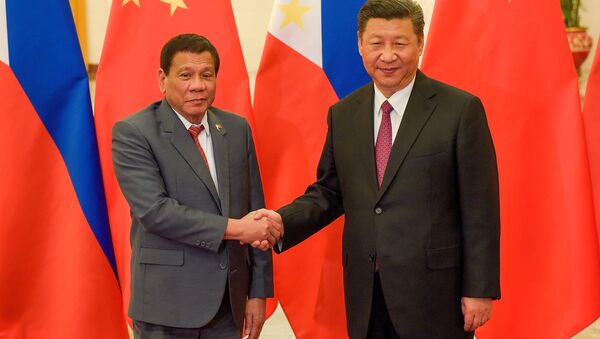Xi announced on Sunday, May 14, that two of the country's own banks would pour US$55 billion into the project which is expected to cost US$124 billion overall. Leaders from 29 countries, including Russian President Vladimir Putin and Turkish President Recep Tayep Erdogan, have been attending a two-day summit in Beijing which is based around the Belt and Road initiative.
World Leaders vow to support Xi Jinping's Initiative to start new era of win-win cooperation. pic.twitter.com/zvAjY7QZf8
— One Belt One Road (@OBORCHINA) May 14, 2017
"All proposed projects correspond to modern development trends, and all these things are extremely necessary and highly demanded. That is why Russia supports One Belt, One Road project and will actively participate in its implementation together with Chinese partners and, of course, with all other interested states," Putin said.
Erdogan said China's initiative would also help to combat terrorism.
In 2016, Pakistan agreed to allow Gwadar to be used by Russia for exports and in January, China gave Pakistan's Navy two new ships as part of the Gwadar deal.
Darrell West, Vice President of governance studies at the Brookings Institution in Washington, said that although the policy was originally unveiled back in 2013, it was increasingly being seen by China as a way of muscling out the United States.
West told Sputnik that following US President Donald Trump's decision to pull out of the Trans Pacific Partnership trade deal in January, Beijing was filling the vacuum.
"China has rushed in to try and fill that vacuum. It has gone to many of the countries which were involved in TPP and said that 'hey, if the United States doesn't want to have this agreement with you, we do' and here is a vehicle for us to develop a better trading relationship," West told Sputnik.
"Many countries are salivating about the possibility of joining with this initiative they see lots of advantages with their local economy. Just the infrastructure alone is going to be quite substantial in terms of the amount of money spent so China has been reaching out to neighboring countries to get them to join this initiative."
West told Sputnik the Belt and Road initiative would boost China's influence in Asia and other parts of the world.
"The Belt and Road initiative is different from some of the shipping lanes because they are adding a rail component and trying to link railroads in Asia with some of those that are running through Central Asia and even Europe," West told Sputnik.
China aims to build a "new Silk Road" linking the city of Xian in central China with Kazakhstan, Tajikistan, Iran, Turkey, Russia and Rotterdam.
China unveils ambitious plan to revive the ancient Silk Road trade routes https://t.co/0py2eQYPje pic.twitter.com/7KZ7vQM16l
— AFP news agency (@AFP) May 15, 2017
But it also plans a "Maritime Silk Road" linking Chinese ports with India, Sri Lanka, east Africa, Egypt, Greece and Italy.
Why did Xi Jinping propose the Belt and Road Initiative? What will it bring to the world? #BeltandRoad pic.twitter.com/KVILGausvr
— China Xinhua News (@XHNews) May 14, 2017
West told Sputnik: "Maritime trade is certainly happening with some countries but the One Belt initiative is designed to expand that network and get other countries involved in a trading relationship and really position China as a global leader on infrastructure development."



